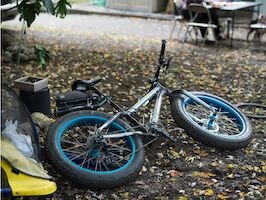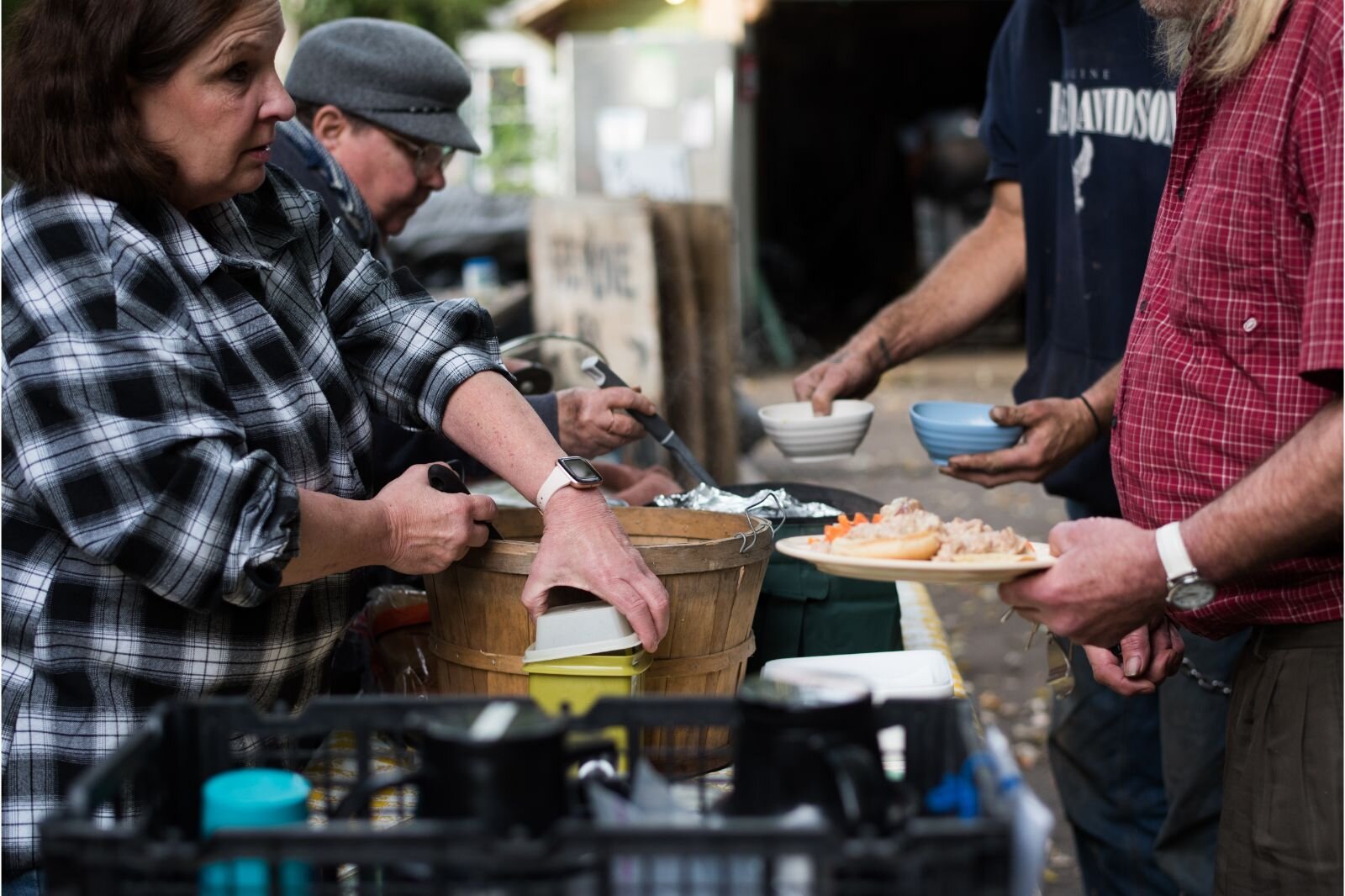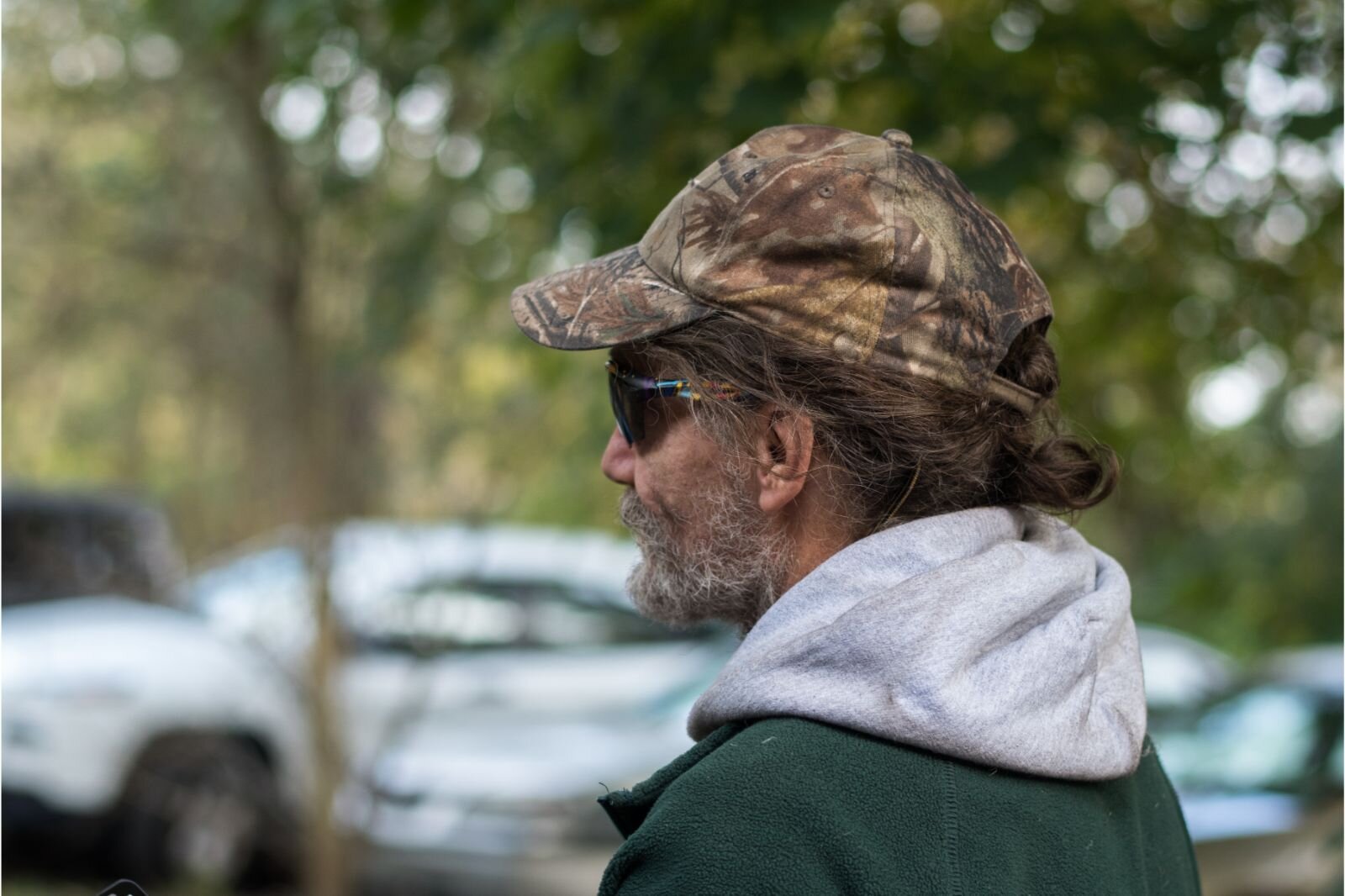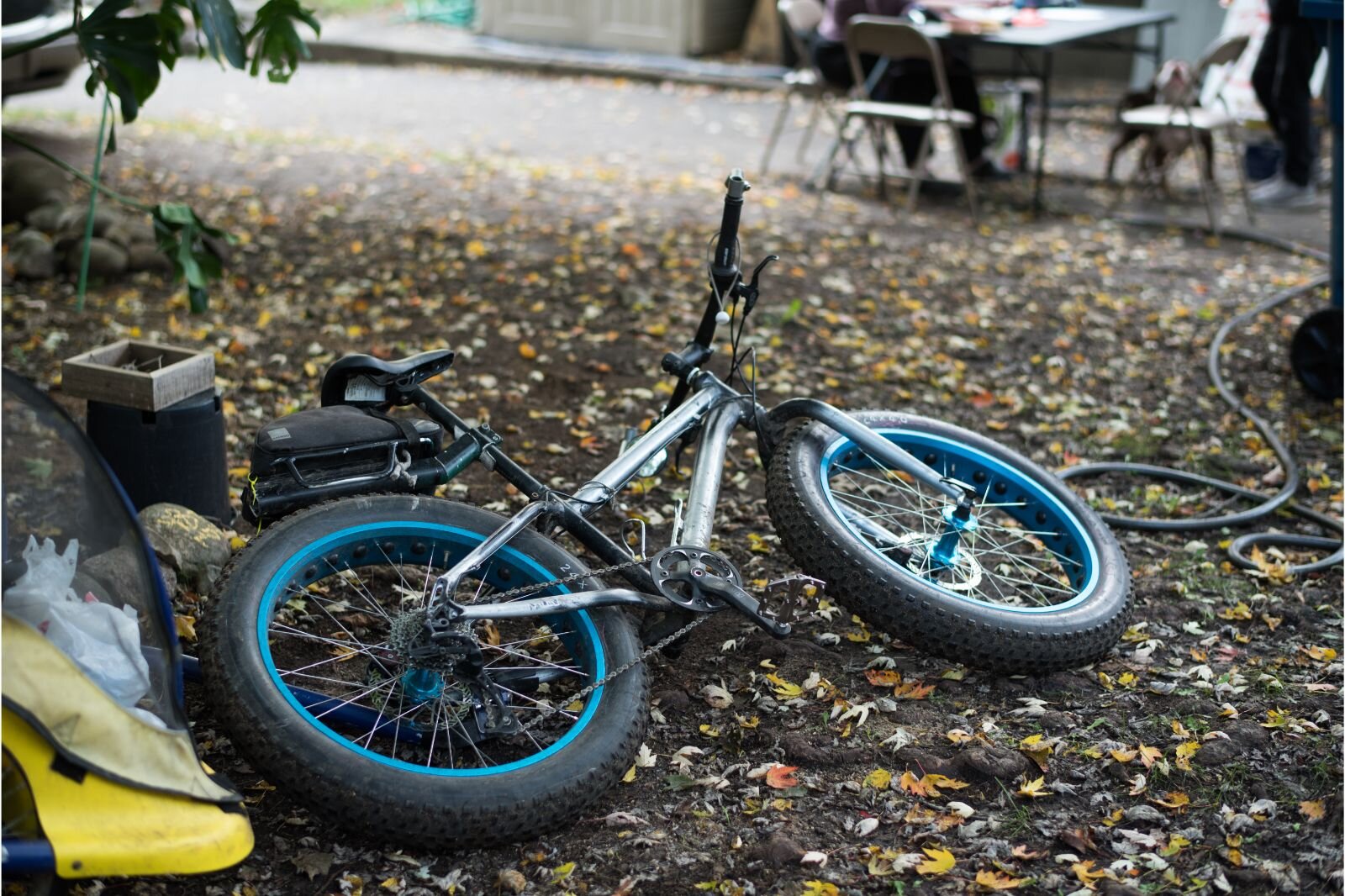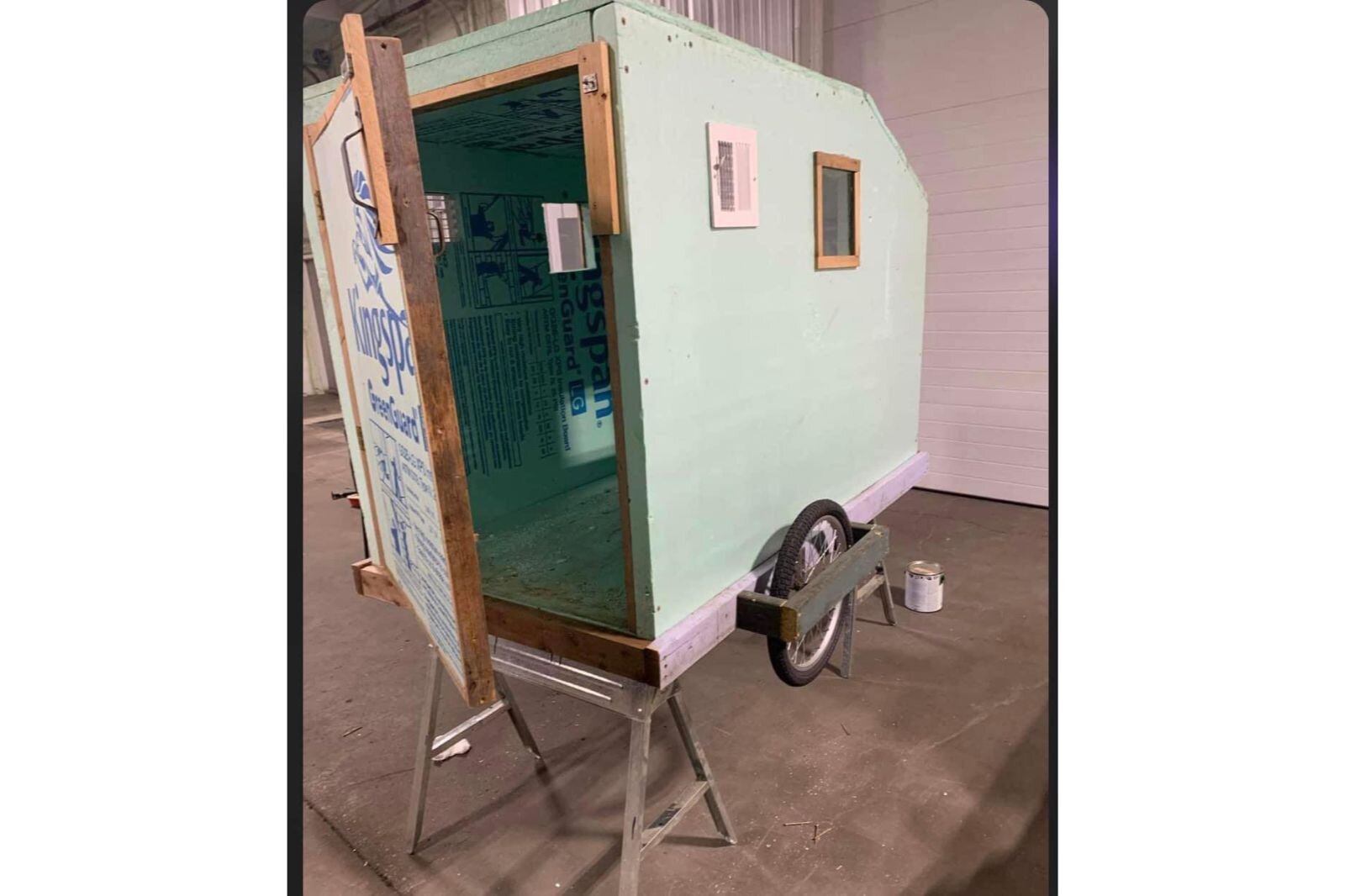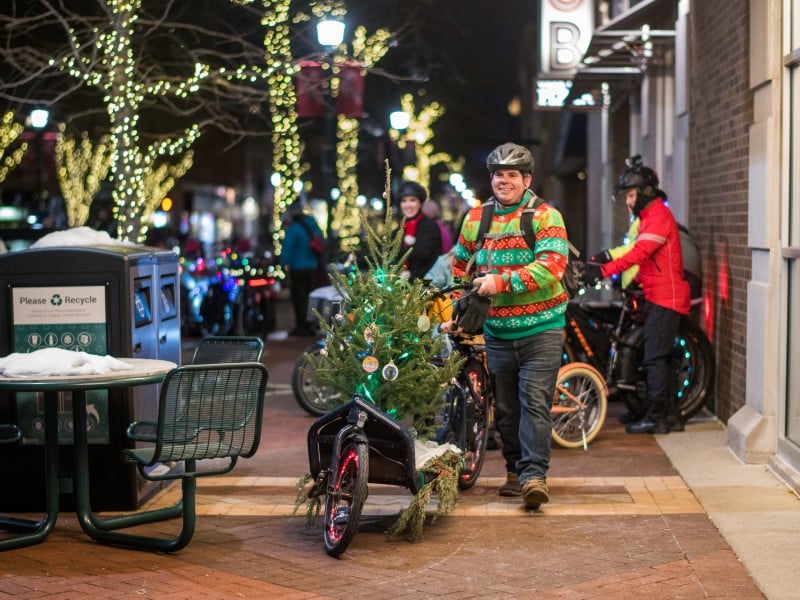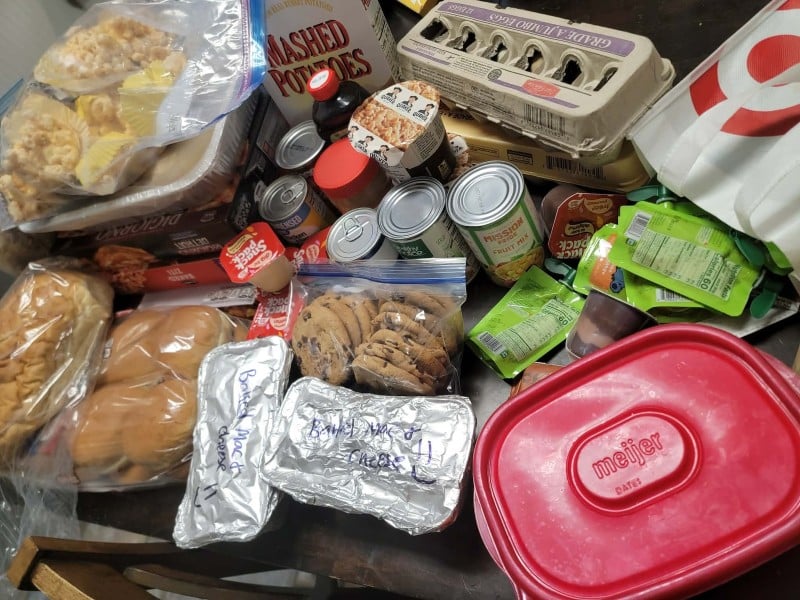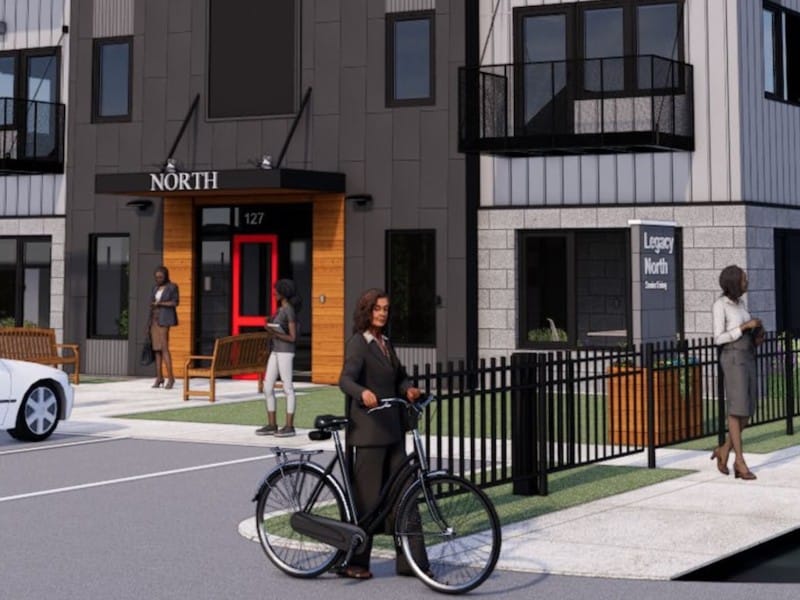(Editor’s Note: Some identifying characteristics and details about the people and places in this story have been left out to protect the unsheltered and the people helping them.)
We’ve all got places to be — jobs, appointments, etc.
But how do you get there when you have no income? When you not only can’t afford a car, you can’t afford a place to stay?
Cars need a constant flow of cash to run. Metro Transit has limited routes, limited times when it operates. The best way for an unhoused person to travel, to be independent, to be able to get to places that can help improve stability, would be a bicycle.
Dignity in Motion formed when Judy Lowery realized that people who are unhoused not only need shelter, they need transportation.
Before Dignity in Motion, Lowery has been in charge of Kalamazoo Together for the Unhoused, which gets food and services to people.
At a dinner that they were serving outside of the PFC last year, “I had a couple ask me if we could get them bikes as transportation,” she says.
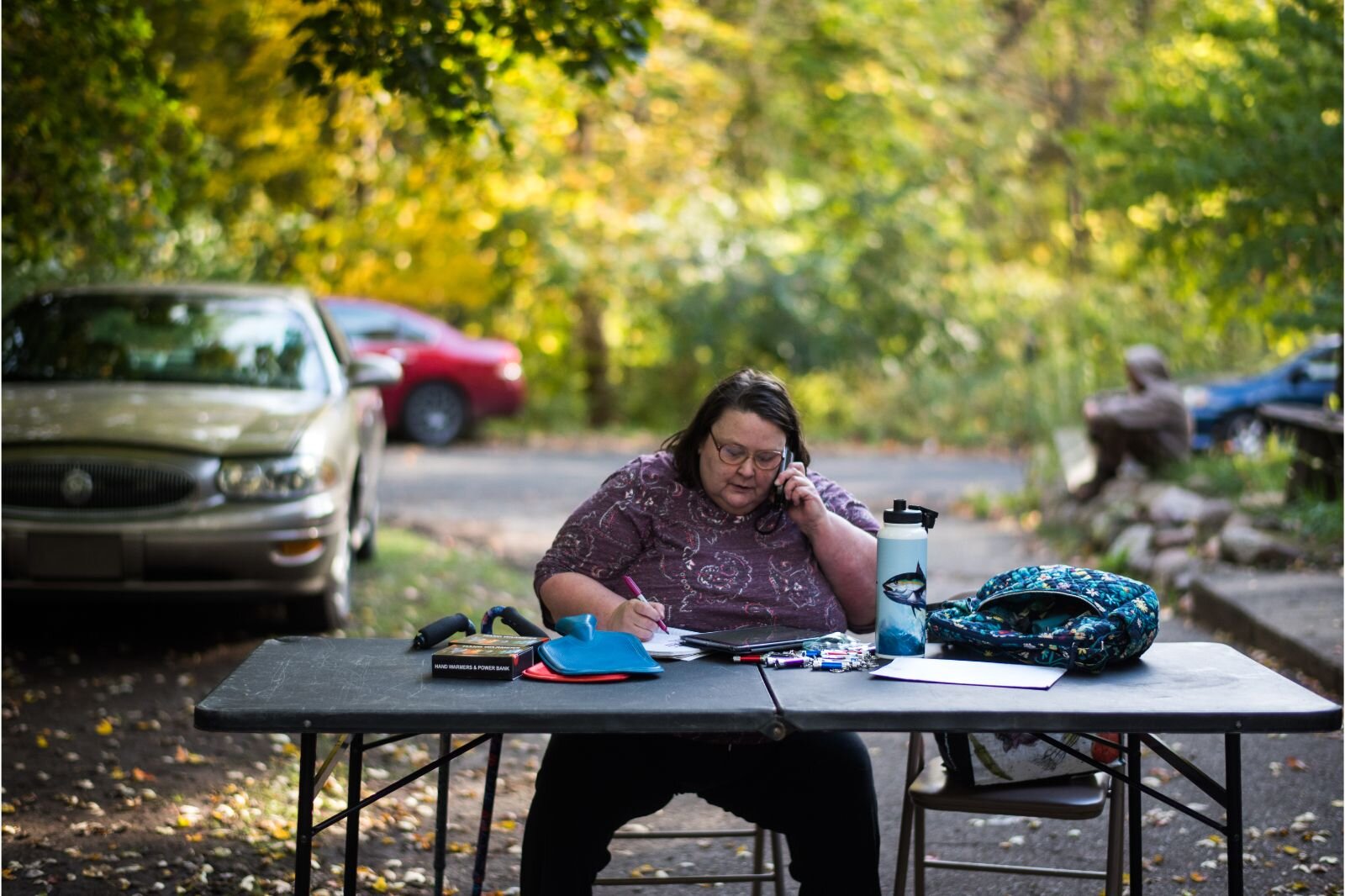
She told them, “Let me work on that.” Lowery unearthed a couple of used bikes that had been going unused and gave them to the couple.
Then Lowery got bikes to six more people. There was a serious demand — to keep things fair, she raffled them off to random attendees at their dinners.
Most donated bikes needed work to be rideable. They needed lights, because the houseless are often out at night, or need to be on the roads before sunup, headed to early work shifts. They needed locks, because theft is a major issue, and they have no garage to store their bikes. Trailers are also in-demand — to get supplies or to just keep one’s possessions at hand instead of in a tent where they might get stolen.
Lowery needed a nonprofit to oversee the complexity of fixing chains and making sure bikes get to those who could make the best use of them. “This is a program that really needs a lot of funding to operate,” she says.
The group she was involved with, Kalamazoo Together is a “grassroots group,” that did not have the resources she needed, she says. So she started Dignity in Motion.
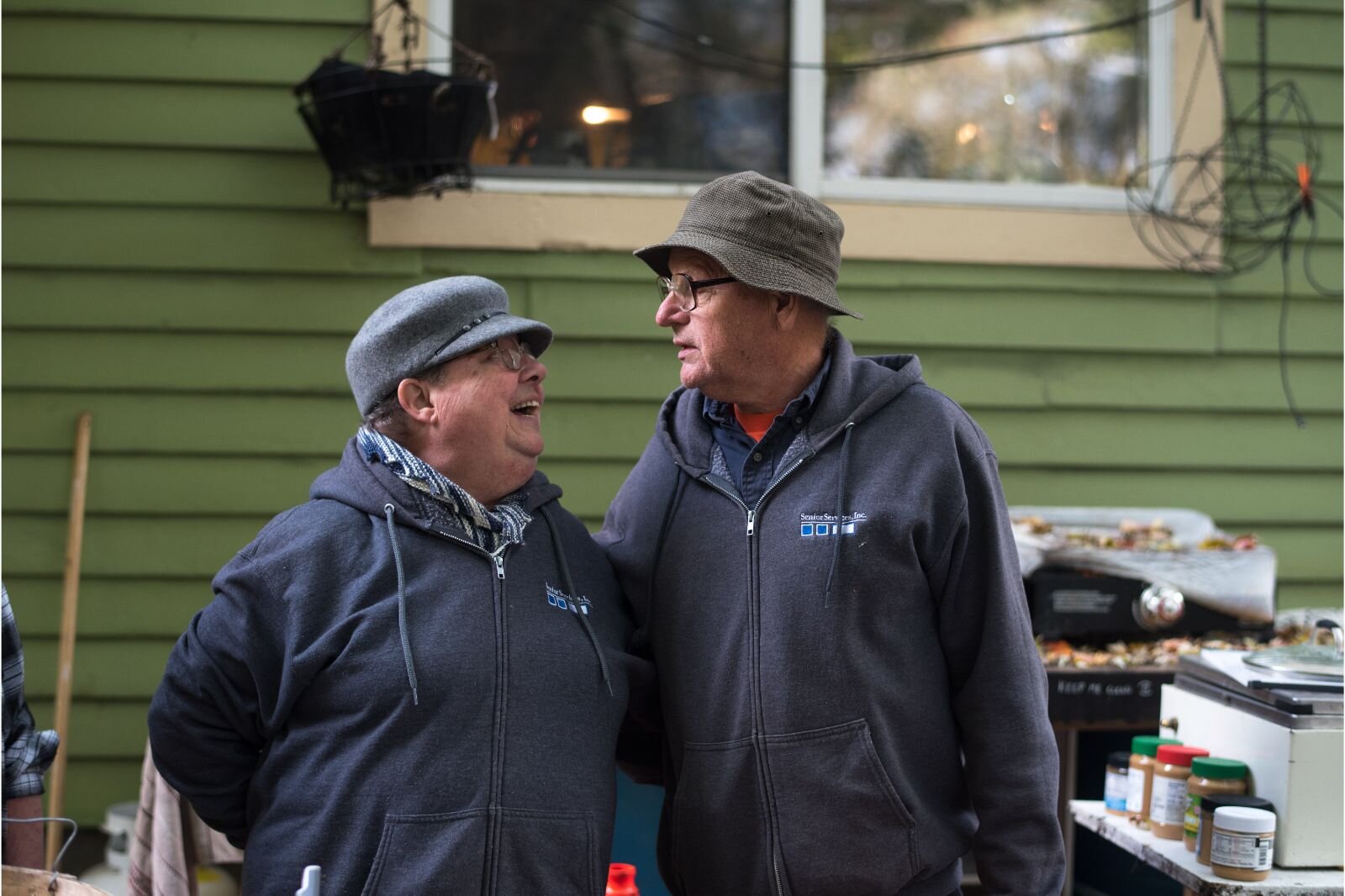
‘I love the bike. I’ll ride a bike till the day I perish.’
At a house on the edge of town, Kalamazoo Together recently was serving dinner for the nearby people who were living unsheltered.
Many could walk the distance from where their tents were. Others biked.
Skinner was lucky enough to have a nearby basement he just moved into, living there in exchange for working on the house.
He was walking on the road to the dinner, but it was a short walk. “I got a flat tire, didn’t really have time to fix it.”
“I’ve been riding bikes for 30 years,” he says. “Keeps me fit, keeps my breathing going. Keeps me young!”
Skinner used to race BMX bikes as a teen. He’s still a “BMXer” he says. He owns a 1996 Schwinn Super Sport 3 BMX frame with various non-stock parts and wheels.
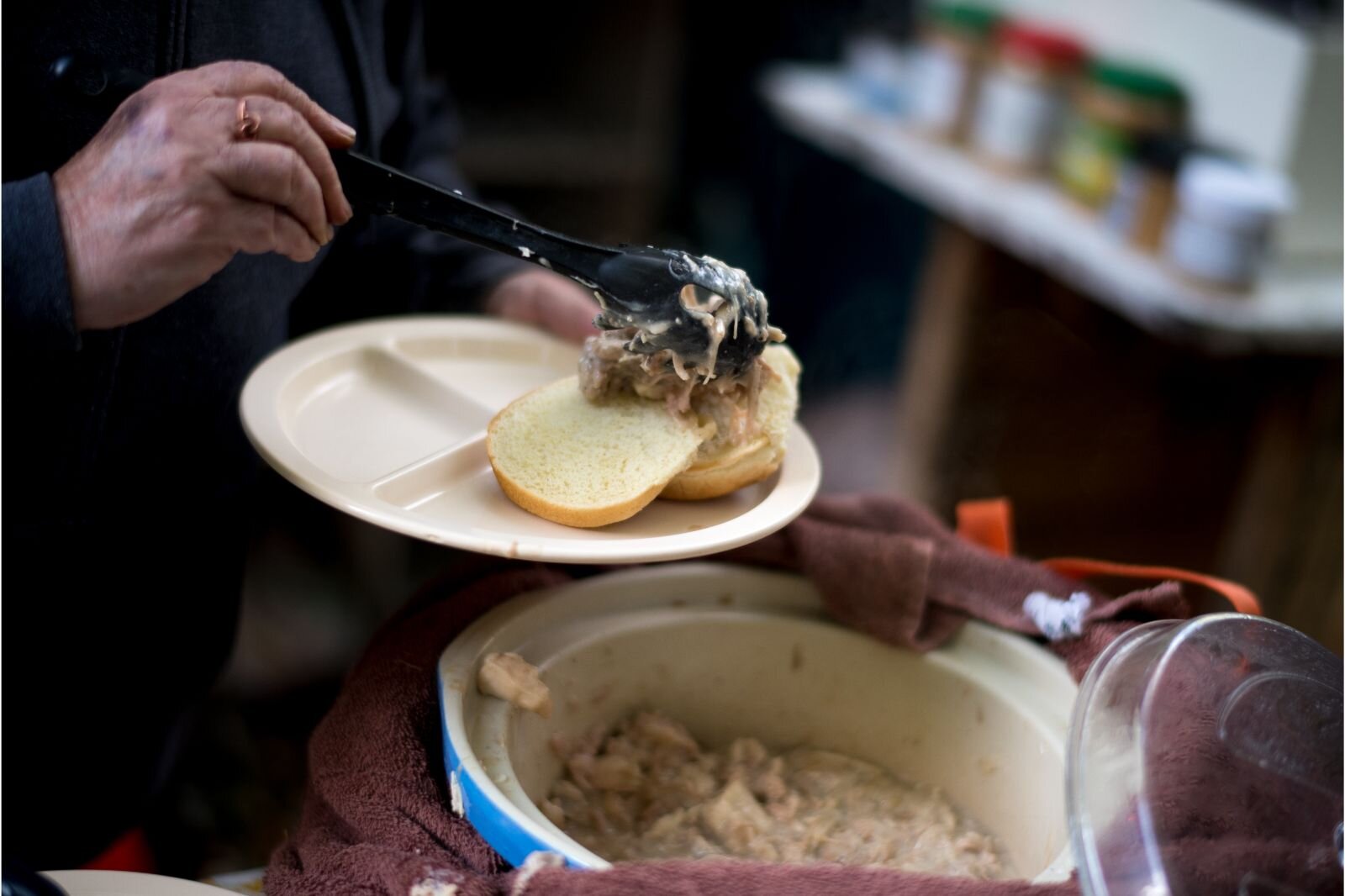
He rides it now as his only transportation.
He could do 50 miles if he had to. “I don’t want to, but I can do it. And then you have to ride back!”
“When you get on your bike, it’s just you and your bike,” Skinner says. “I get to be in my own world, I guess. Not that I ain’t now, you know what I’m sayin’. I love the bike. I’ll ride a bike till the day I perish.”
A lot of pride goes into owning a bike, especially if you’re unsheltered and have no other options. Skinner says he carries tools around with him and can fix his bike or the bikes of others. “I try to keep people on bikes, keep ’em rollin’.”
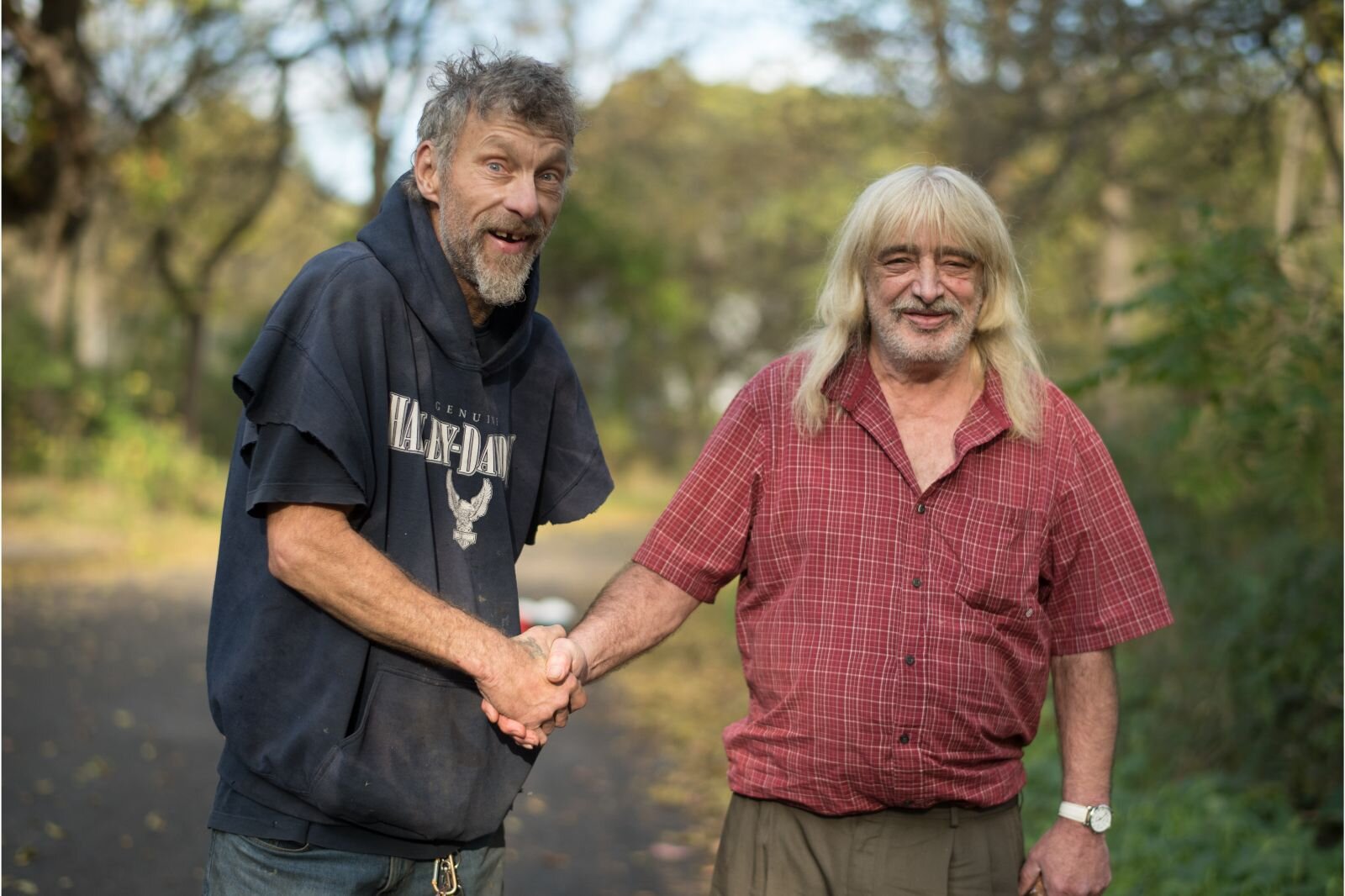
Others we talked to at the dinner do their best to keep their bikes rolling — or just keep them.
Marlon came in on a borrowed bike. “My bike has been stolen. Our encampment was robbed two weeks ago,” he says.
Bike theft in the community is rampant. “The bike locks aren’t doing too well against — ” Marlon makes the motion of bolt cutters cutting a lock.
Marlon needs wheels — he has a plate and screws in the bones of his feet. “I can’t walk (long distances) at all.” He had a car that he was living in, “but it got towed.”
“A bike is essential for us,” he says.
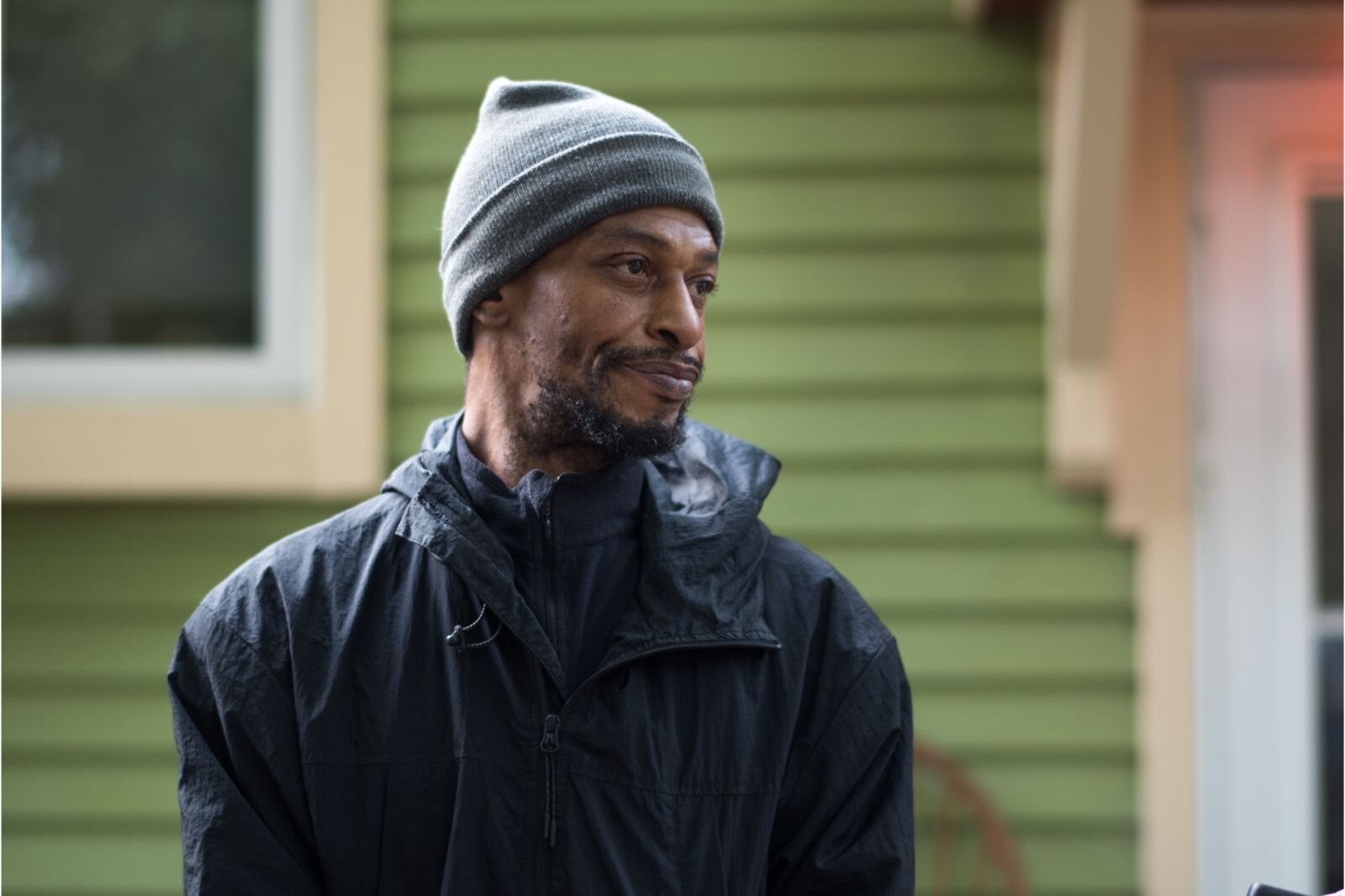
Uncle Darcy says he also had his bike stolen. “Been about a month without a bike… I’m highly upset.” He had a medical appointment that morning, and needed a ride, but couldn’t find one. “I could chew nails.”
When Darcy had a bike, “I averaged about 20 miles a day. Rain, snow, shine, didn’t matter. I had my nice big cushy seat!”
A bike is “a must-have! When you don’t have somebody to give you a ride, you got to have a bike.” Walking “is hard on your shoes and hard on your feet. Hard on the hips, too, when you get to my age.”
Darcy, Marlon, and others say that another essential is a bike trailer. Try carrying a propane tank while on a bike, Darcy points out.
A trailer is needed for “when we have to move, which is quite frequently,” Marlon says. If, for instance, the police arrive to break up an encampment, one has to get everything in the trailer and roll. “Do as best as possible to keep all our things together.”
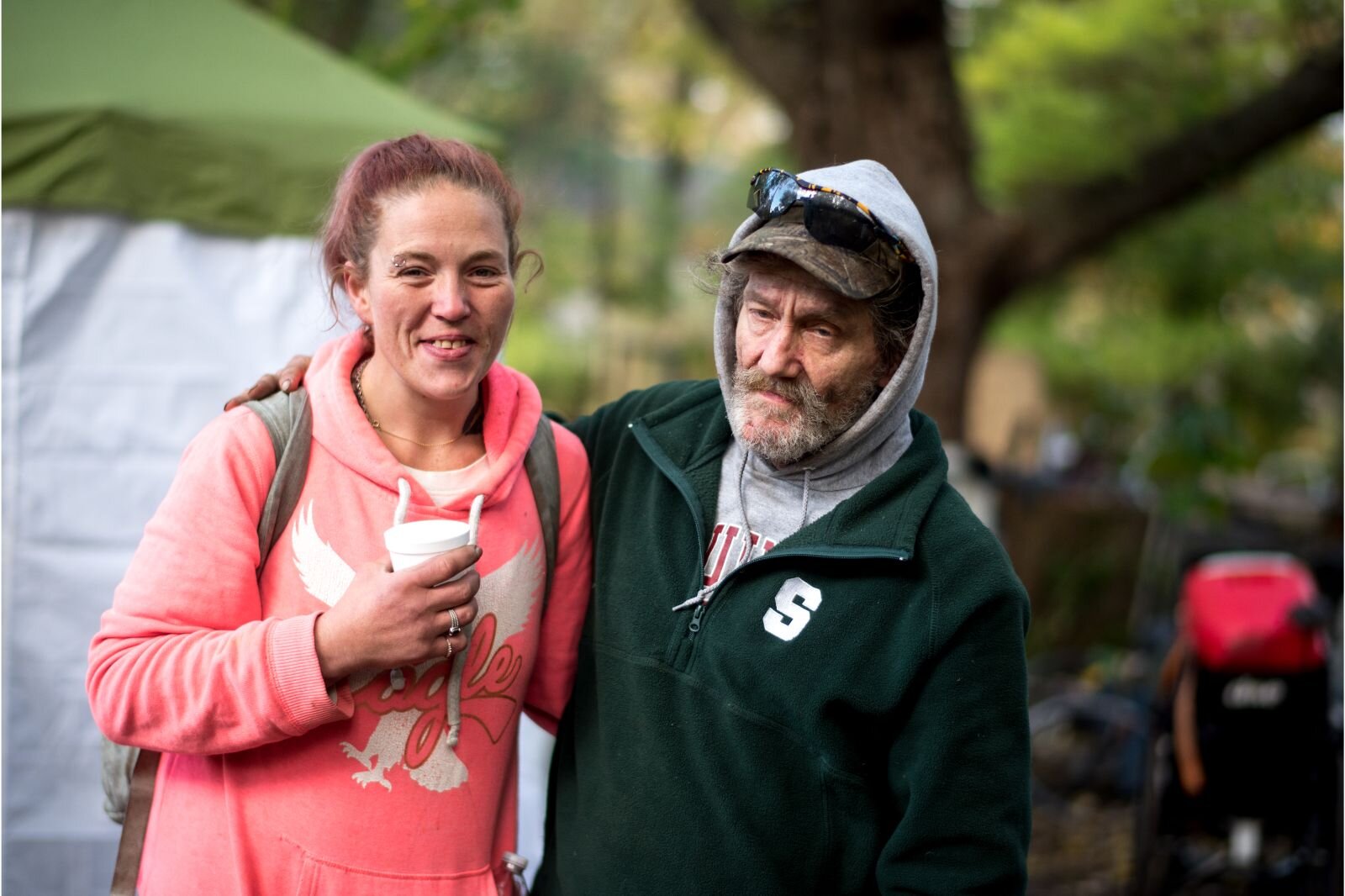
About dignity
“I don’t like people to have to beg from us to get anything, or to feel like we’ve done them a huge favor,” Lowery says. “Dignity is our main component here.”
Frenchie was eating at Lowery’s table, where Lowery was overseeing the dinner. Frenchie got a bike from Dignity in Motion around a year ago, but it, too, was stolen recently. She’s now on a borrowed bike.
“I can’t stand a thief,” Frenchie says with some real anger.
She bikes to Ministry with Community’s drop-in day shelter, rides around Kalamazoo to “get to appointments, haul my things, go do laundry, stuff like that. Makes it a whole lot easier.”
Lowery tells her, “I’ll have to see when you got yours. It’s 365 days before we can replace them.”
If a recipient of a Dignity bike loses it for whatever reason within a year, they have to wait to be put back on the list.
“The main reason for that is, we have such a long list,” Lowery says.
That list is now at 27 people requesting bikes. The demand is year-round — last winter, they gave away about 30 bikes.
“People were astounded,” Lowery says. “People need transportation year-round — just because you won’t ride a bike in the wintertime doesn’t mean that somebody else won’t. Especially when it’s the only mode of transportation that they have.”
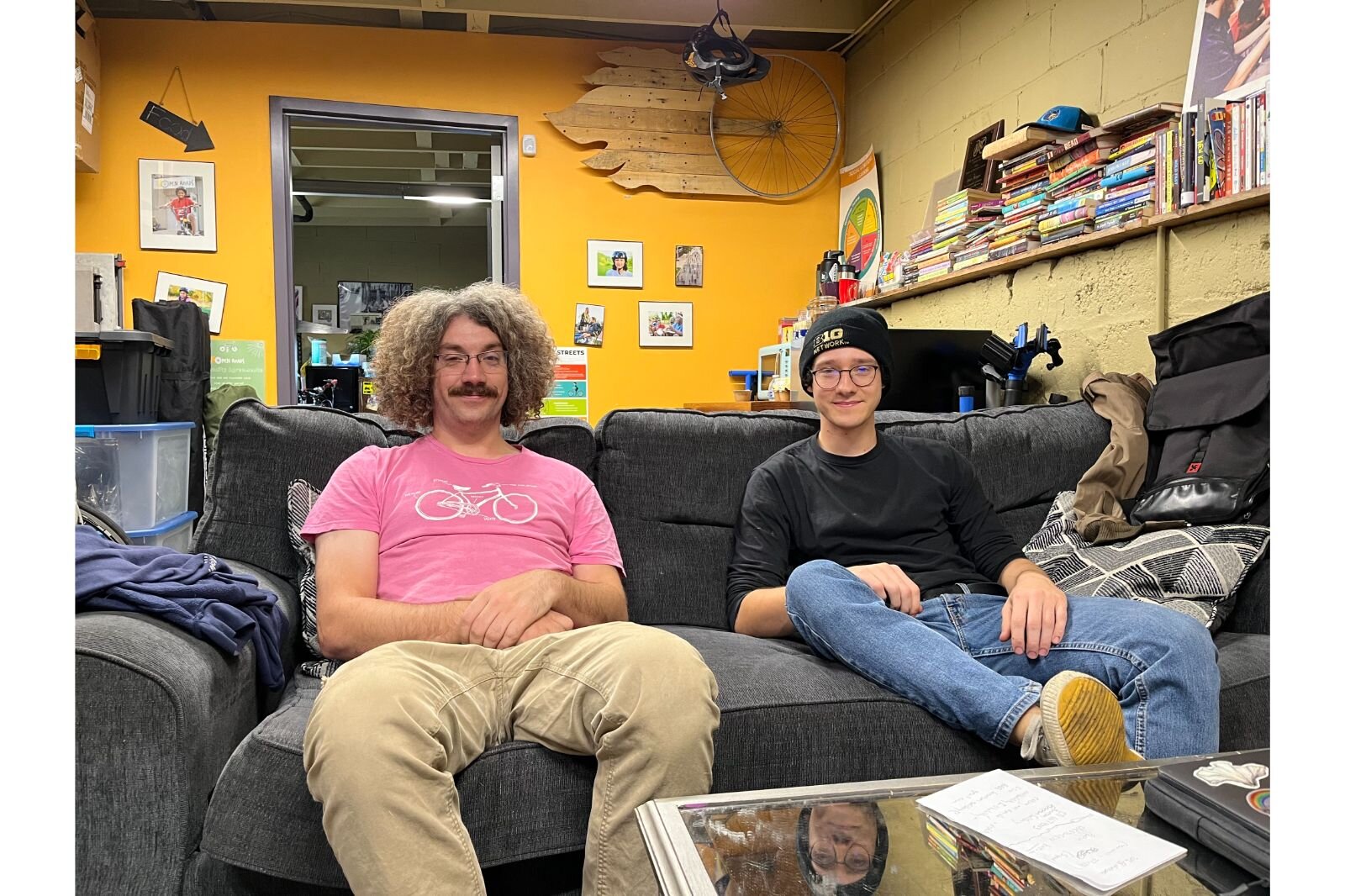
Sometimes people get moved to the top of the list if they have a job they need to get to or have other extenuating circumstances. The Recovery Institute of Southwest Michigan has been a major partner, helping get bikes to people needing to get to peer meetings and therapy for addiction recovery.
All circumstances seem to be extenuating for people without shelter. “I used to ride a bike for pleasure…. You have the opportunity to make a decision (to bike),” Lowery says to this writer.
“We’re talking about people that don’t have choices like that, so that’s why the bike is so extremely important. It’ll take her, what, 40 minutes to walk into town from here?” She asks Frenchie, “How long on a bike?”
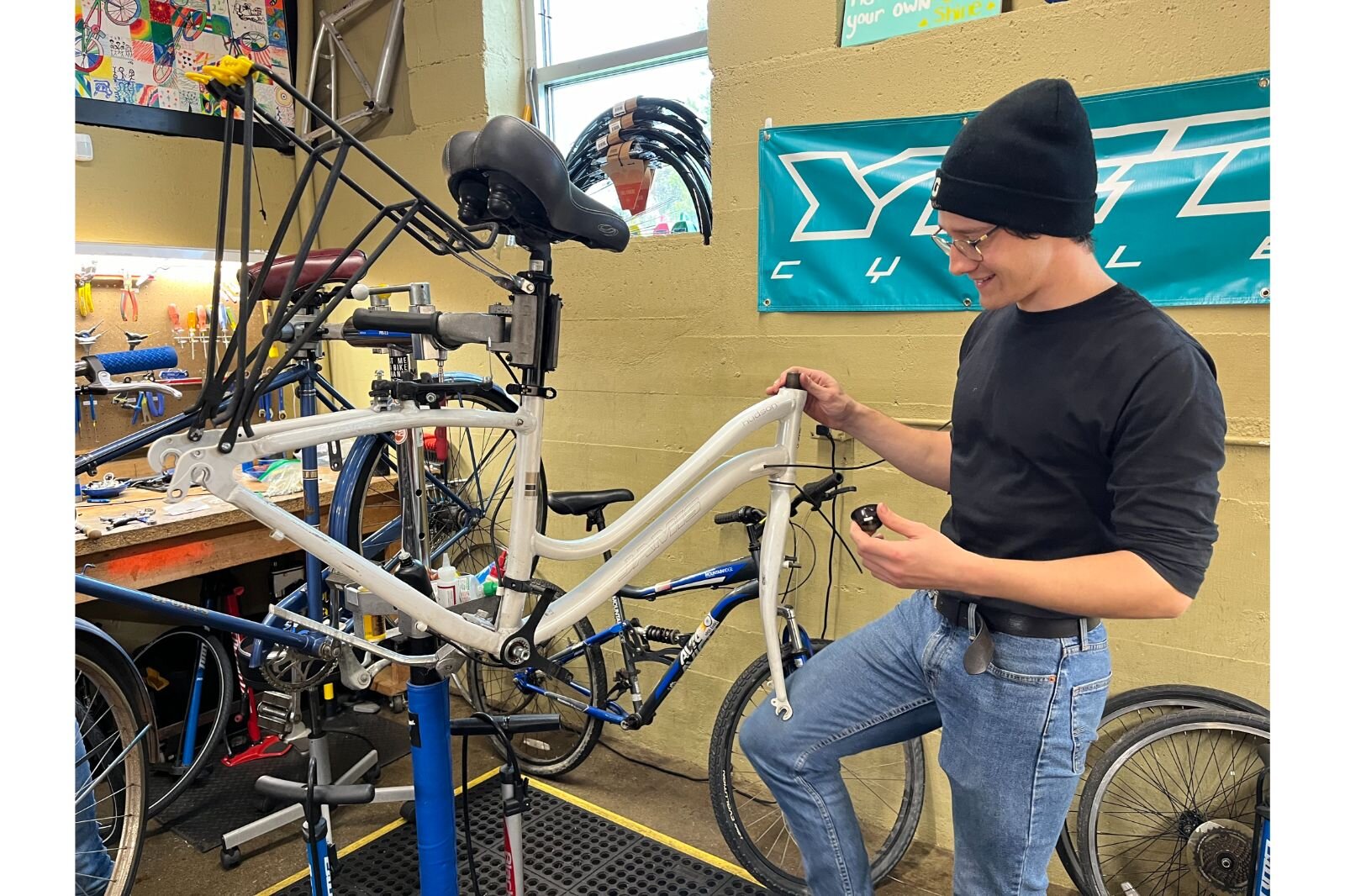
“Ten, 15 minutes,” Frenchie says. “Plus you can carry a lot more.”
Bikes as an ‘equalizing force’
Dignity in Motion is not handing out just bikes. The League of Michigan Bicyclists and Bike Friendly Kalamazoo have donated lights and locks to the organization, plus Bike Friendly Kalamazoo gave them a $2,000 grant for more lights.
The bikes Dignity in Motion gets tend to be the old forgotten ones in the backs of people’s garages. They usually need some work.
Open Roads is a major partner with Dignity in Motion. It’s a youth-centered organization, known for its program where kids can learn how to fix bikes, build skills, and eventually keep the bike they’ve worked on.
They also have adult fix-its on Fridays. Dignity in Motion has a volunteer, Scott Avery, “they give him the space to repair our bikes. Issac and Ian, they share their knowledge,” Lowery says.
That’s Issac Green, executive director, and Ian Smith, program manager.
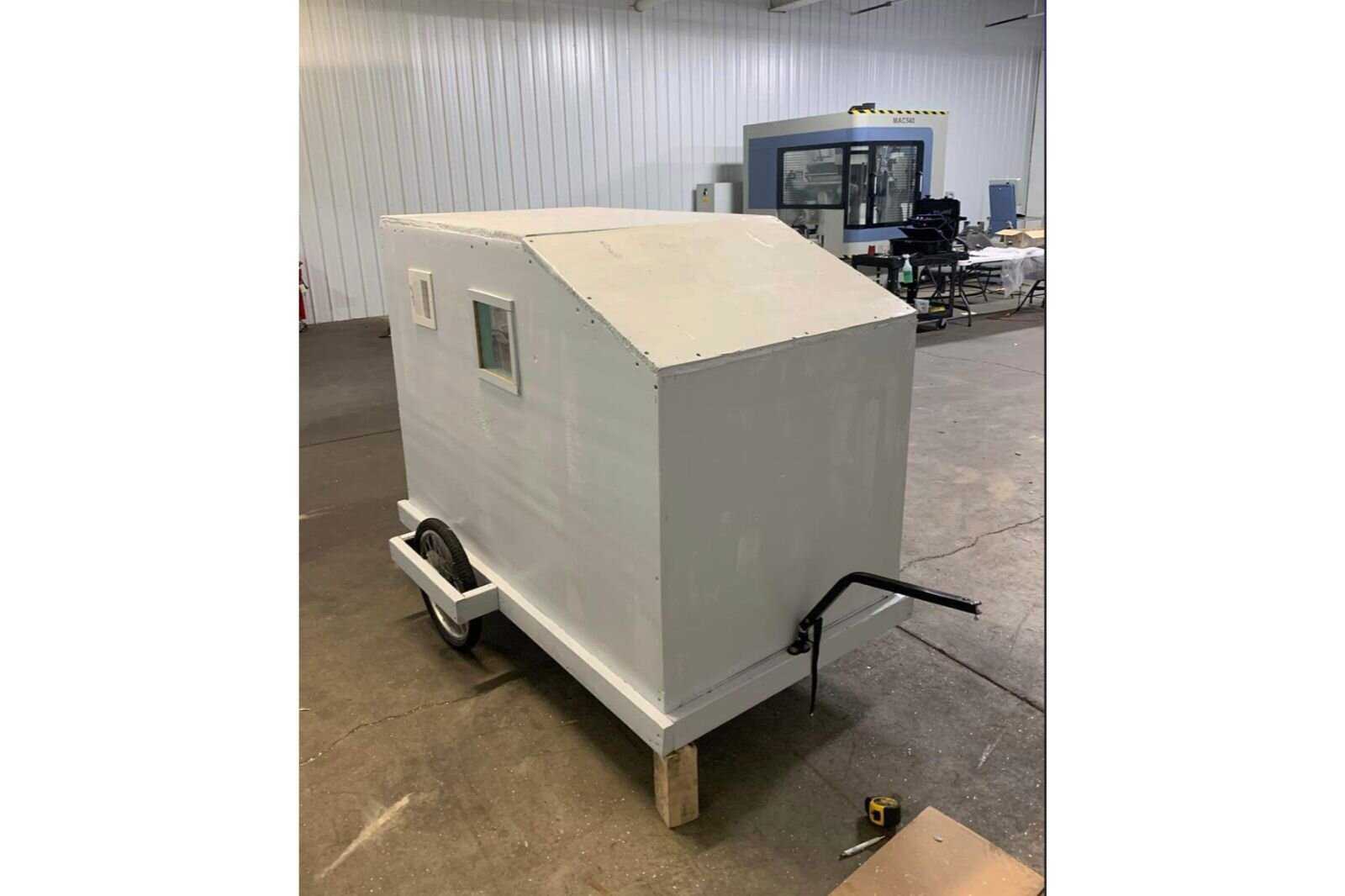
Avery arrived a year ago at their adult fix-its, “and has become a fledgling bike mechanic,” Green says, by fixing the bikes for Dignity in Motion.
Green and Smith are both regular bike commuters, some of the bikers who’ve chosen to ride more than drive. There’s a “growing culture” of people using a bike as transportation in Kalamazoo, Smith says.
These people span the gamut from someone who might seem privileged, who have spent a couple thousand on a high-end bike or e-bike, to someone who’s houseless and is riding a rusty old bike in need of brakes.
“I think bikes have been an indicator of social mobility for 120 years now,” Green says. “They’re a very cheap, affordable way for people to get around, travel far distances, maintain a schedule, maintain their job, appointments, all that.”
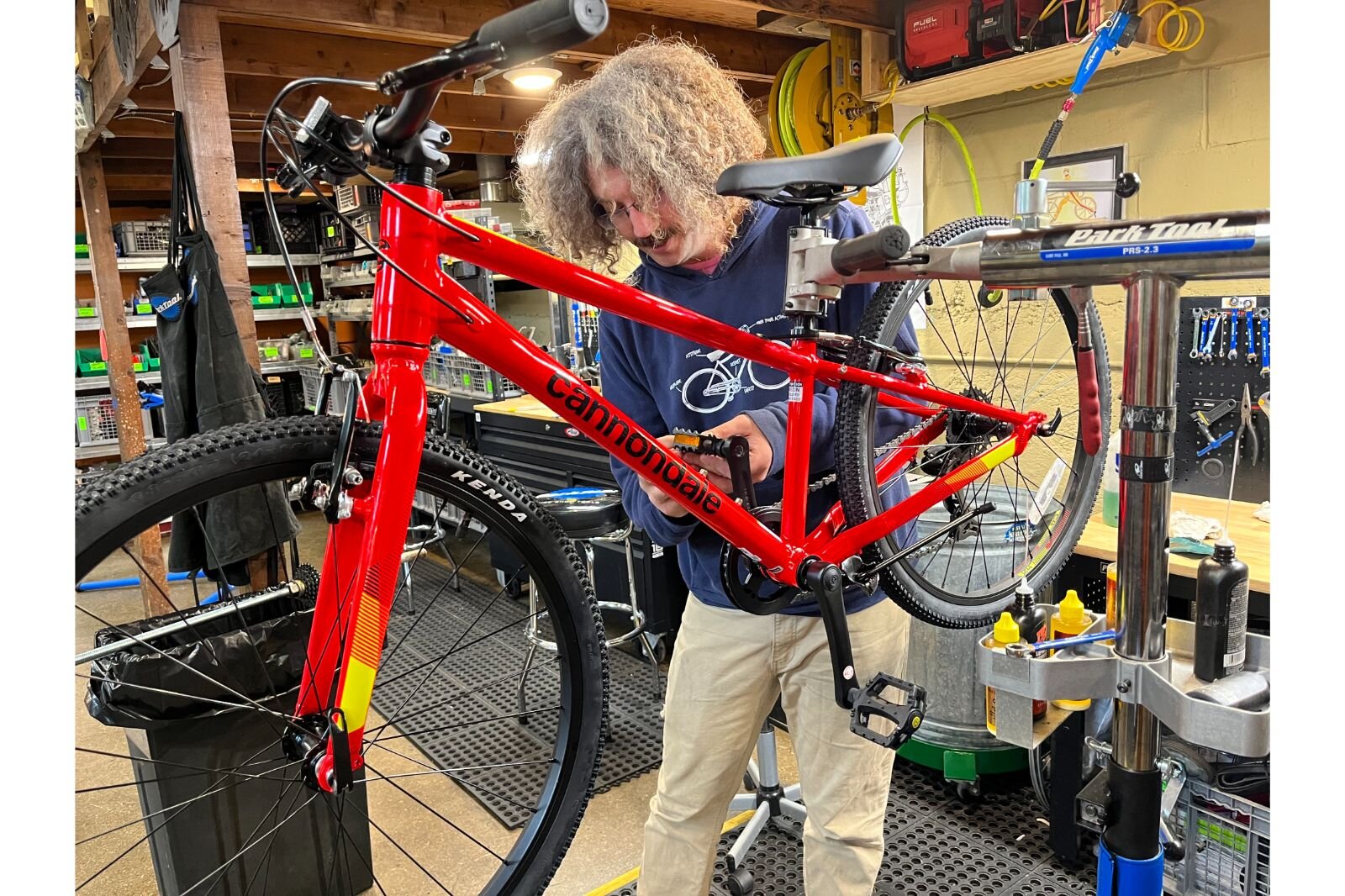
Green continues, “A lot of people can’t afford a car. The expenses that go along with owning a car, your insurance, maintenance — “
“Gas!” Smith adds.
” — parking, everything. That’s absolutely a barrier for a lot of people.”
Smith says, “I think bikes are really good equalizing forces. Really, ultimately the only difference between a $1,500 e-bike and a $100 cruiser that a homeless person may ride, the difference is pretty much the quality of parts. Mechanically, at its root, it’s the same.”
The basic need of anyone using a bike as transportation is “a bike with really good brakes and, ideally, pretty good tires that’ll withhold a puncture,” Smith says.
An average bike owner might spend “$150, maybe $200 a year on maintenance and repair,” Green says. That includes basic equipment, helmet to tubes, and “most of those things are going to last multiple years.”
“I say $200 a year, but you can easily get by for a year without spending any money on your bike. You just need air, and a rag, and $6 for a bottle of lube. If you get lucky, you don’t pop a flat, you don’t run over any staples…”
Bikes do run into problems. Open Roads holds “Fixapaloozas,” where they take their tools and mechanics out into the community to help fix bikes. They’ve held them at the house mentioned above. The homeowners provide aid for the unhoused, so Open Roads taught the homeowners basic bike mechanics, so they can educate the people they help.
Some of the bikes they’ve seen pedaled by apparent houseless people “are the most f–k-ed up bikes on the planet,” Green says. “These folks are riding around on bikes with no brakes, or with wheels that came off another bike that got trashed, that are not compatible with the frame that they’re on… bent axels… five broken spokes…. ”
On the other hand, “It’s honestly one of the more ingenious communities out there,” Green says. They’ll get a bike usable no matter what they have on hand.
Open Roads is willing to help. Green says, “With how ubiquitous used bikes are right now, 0ur program and in conjunction with Dignity in Motion, we’re in an excellent place to rapidly repair quite a few of those every week.”
Bike camper
Jerry and Donna Wilinski were at the Kalamazoo Together dinner, helping to serve food.
Jerry helps pick up donated bikes for Dignity in Motion and drives people to appointments when he can.
“We’re working on, right now, a bike camper,” he says.
Wilinski, Scott Avery, and Steve VanTongeren have designed and built the camper, which should be ready to give away in “the next week or so,” Lowery says.
The camper can be used as a small shelter. On wheels, with a bike hitch, it’ll be, hopefully, light enough to tow. Walls are made of insulation boards, there are windows, vents, and a solar panel large enough to charge phones. “It won’t be 70 degrees” in the winter, Lowery says, but it will be warmer than a tent.
It’s a prototype that she hopes will lead to a series of mobile shelters that wouldn’t have the benefits of a house or apartment but would be better than a tent.
Aside from their bike project, Dignity in Motion is raising money for a “Hope Coach,” a bus to be fitted with 20 bunks that could be used as an emergency shelter.
These are people who are in a desperate situation, Lowery often reminds, and innovative ideas are needed to help them. “I have found that working with the unhoused population, we tend to believe there are easy answers to everything, and it’s actually very complex,” she says. “You have to really step out of false narratives that you’ve had, and many of us have had them,” she says.
They might not be as convenient as a privately-owned motor vehicle, or a larger public transportation system than what Kalamazoo has, but bikes get the job done, Lowery says. “It is a very realistic, very sustainable means of transportation for a lot of people. I could easily, tomorrow, give out a hundred bikes and still not meet the need.”
This story is part of Southwest Michigan Second Wave’s series on solutions to affordable housing and housing the unhoused. It is made possible by a coalition of funders including Kalamazoo County, the ENNA Foundation, and the Kalamazoo County Land Bank.

